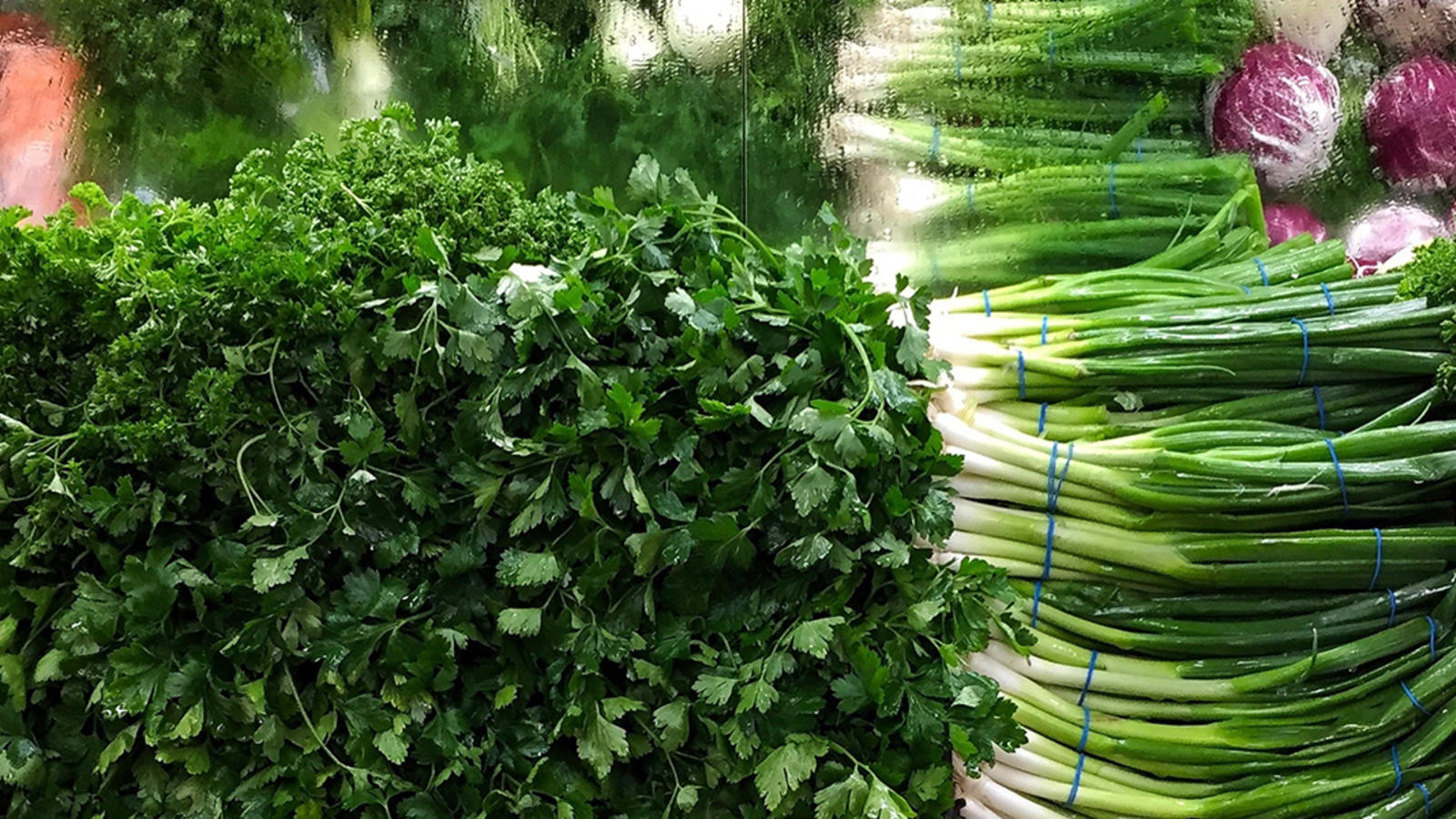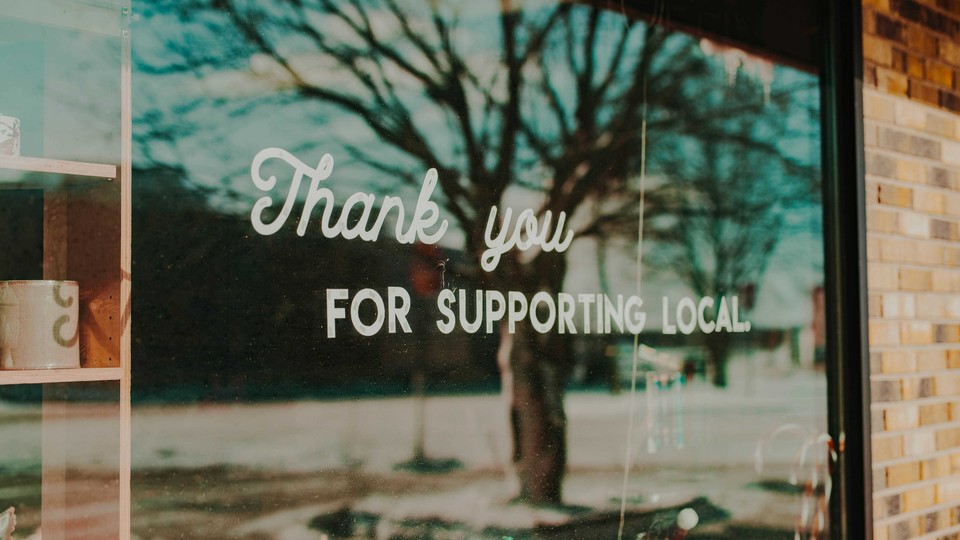
Movable Feast
Eating Healthy Can Be Difficult: A Rice Business Alum May Have A Solution
Eating Healthy Can Be Difficult: A Rice Business Alum May Have A Solution
This article originally appeared in the Houston Chronicle.
Dustin Windham's at the grill on the roof of Houston House apartments, watching Gulf Coast shrimp turn perfectly pink.
It's Wednesday night. As he cooks, his broad-shouldered silhouette framed against the lights of downtown high-rises, a table of guests, most meeting for the first time, share stories about Harvey. Waiting for the shrimp, they look over a spread of roasted organic sweet potatoes, guacamole made from scratch, a cole slaw of fresh purple cabbage and shredded carrots. And plenty of local beer and wine.
If Windham had his way, this is how we would eat every night, all over the city.
It's what he learned to do when he served in the Peace Corps in Azerbaijan. Used to the wall-to-wall abundance of the estimated 38,000 supermarkets in the U.S., he was forced to eat there in a new way.
That's because there weren't any supermarkets. Instead, he says, everyone went about once a month to the bazaar for staples, and the rest of the time picked up what they needed from the produce stand or the butcher shop. Walking home from work, Windham would stop for a few ingredients — some fish, some seasonal vegetables, some baked-that-day bread — and then go cook, usually with friends. "Most Americans don't get that opportunity," he says, "but I learned that it's a better way to do it."
He lost 30 pounds, and he had an idea: Why can't we create that opportunity in Houston? Why can't we eat like that here?
It's a city that could stand to lose a few pounds itself. Almost 66 percent of Texans are overweight, nearly 28 percent obese. According to Roberta Anding, a dietitian and professor at Baylor College of Medicine and Rice University, food-related diseases plague Harris County: The rate of diabetes here is higher than the national average, and it's even worse for people of color; 70 percent of adults surveyed recently by the Houston Health Department take medication for high blood pressure.
Harris County also has one of the highest death rates among the most populous U.S. counties from obesity-linked cancers.
"We have a link between the amount of produce on your plate and disease," Anding says. Meanwhile, the average Texan gets just 1.6 servings of fruits and vegetables a day (The U.S.D.A. recommendation is 5). Forty percent of Texans report eating less than one serving a day. Anding says, "We have a crisis of diet."
And it's a complex crisis, compounded by many other factors, none of them simple to solve in and of itself. One is a basic lack of access to those fruits and vegetables. In 2015, the Chronicle reported that as many as 500,000 Houstonians live in "food deserts," defined by the absence of a supermarket in a one-mile radius. Calories have to come from somewhere, though, and they tend to be found at corner and convenience stores and fast food restaurants — where processed foods are most readily available.
Another is education. Even if you can access fresh fruits and vegetables and fish and lean meats, you have to know how to cook them when you get home. It is not self-evident what to do with a beet.
And another is time. "Parents are busy," says Dr. Faith Foreman, the assistant director of the Houston Health Department. "They're trying to get kids to school, trying to do homework, get dinner, and they start all over tomorrow. It's tempting to hit McDonald's on the way home. It's easy to do that."
These factors lead to a sad conclusion: Our cities are filled with people who aren't eating — and therefore aren't feeling — all that well. "It's a complex problem," Foreman says, "and it requires a complex response."
What cities tend to do, says Doug Schuler, an assistant professor of business and public policy at Rice University, is identify what he calls "supply-side" and "demand-side interventions." You can try to change the foods that people want or change how they get it. In Houston, these interventions range from education programs in elementary schools to shopping tours to city-backed loans like the one Pyburn's Farm Fresh Foods received in 2014 to develop a store in OST/South Union, a food desert.
But even then, consumer behavior is hard to impact.
Six months after that Pyburn's opened, a survey conducted by the Health Department found that there wasn't an increase in the amount of vegetables, whole grains, fish and other seafood that residents purchased there.
"We didn't see much change," says Beverly Gor, a registered dietitian who works for the city.
The same was found to be true in New York City, where a new supermarket developed in a food desert in the Bronx didn't change consumer behavior, either: "The neighborhood welcomed the addition, and perceived access to healthy food improved," concludes Margot Sanger-Katz. "But the diets of the neighborhood's residents did not."
Time, education, access and consumer behavior: Windham wants to provide another intervention, albeit from the private sector, that could help Houstonians with all of these. In 2015, with business partners Michael Powell, Jamal Ansari and Kelly Windham, he founded Grit Grocery.
Windham says he's not a foodie, but Grit Grocery is kind of a foodie's dream. It's a farmers market on wheels, a bodega that parks on your block, stocked with fresh produce and proteins as well as local pasta, cheese, honey, bread and more.
It attempts to replicate for a low-slung, far-flung city pockmarked with food deserts the experience that Windham had in Azerbaijan.
Grit first rolled out in five Houston neighborhoods — downtown, EaDo, Midtown, Museum District and Magnolia Grove — parking in the evenings near apartment buildings when residents were getting home from work. And it was a hit. "It made it easier for me to cook," says Megan Sip, who lives in EaDo and shopped at the truck near her apartment by BBVA Compass Stadium.
"It became a nice community aspect, too," she says. "I'd meet other neighbors out there. It's almost like a watercooler at the office."
Now, while the original truck still makes occasional appearances, Windham is looking to finance through an equity crowdfunding campaign a fleet of trucks, which he will need to match the scale of his ambition — and the scale of this city. Eventually, Grit will also be coupled with a mobile app that will let customers order easy-to-cook preset "meal bundles" that can be tossed in a pan with some olive oil and will include a feature that helps them organize dinner parties.
It's slow food meets high tech.
Already, he has the support of customers like Sip, who says she wants to invest, and Mayor Turner, who calls it a "tremendous opportunity" to create more access and sees an intervention like it as crucial to his Complete Communities initiative.
Foreman says, "It's definitely an opportunity not to solve, but reduce, food insecurity in food deserts. They're on the right track."
Grit Grocery comes at an interesting time. As food-delivery services like Instacart and meal-kit ones like Blue Apron increase in popularity, supermarkets are changing — they're being forced to. In "Grocery: The Buying and Selling of Food in America," Michael Ruhlman traces that change. There might always be Targets and Walmarts — the American version of the bazaar — but many supermarkets have become less super, smaller, focusing less on processed foods and more on fresh produce and proteins.
"Our generation," says Windham, "is learning how to interact with food again. We're recognizing that food preferences are changing."
Now that Amazon has purchased Whole Foods, this change might become only more accelerated. One of Ruhlman's sources, the co-CEO at Midwestern supermarket chain Heinen's, predicts that supermarkets will continue to shrink in size: "If Amazon has its way," he tells Ruhlman, "that stuff in the center of the store will all be delivered to your door. And we'll go back to the old days, where it's all specialty stores."
How small with they shrink? How special will they be?
Windham's betting that it might be as small as a single truck, parked in the right place, providing the right few things at the right time. Maybe that will help the city with food deserts, with diabetes and high blood pressure, with obesity.
"You can have convenient and healthy," he says.
But there's also a reason he named the company "grit." He knows that addressing all these problems isn't going to be easy.
Never Miss A Story


